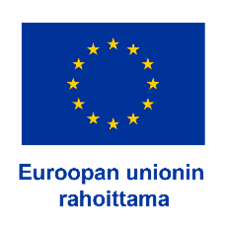An international project is developing new methods to help paramedics identify patients with cardiorespiratory diseases and stroke who need urgent care. The aim is to reduce the time it takes to treat patients and improve outcomes.
The EU's Horizon Europe programme has awarded €9.4 million in funding to the POC4TRIAGE project led by the University of Turku, the total budget of which is over €10 million. The share of the University of Turku of the funding is €1.3 million. The four-year project involves 18 partners from 11 countries.
Cardiorespiratory diseases and stroke are among the four leading causes of death in emergency care in Europe. The project will develop new devices to identify the urgency of these conditions, which can be used in ambulances, emergency rooms, and intensive care units.
These cost- and energy-efficient devices allow information to be shared from the ambulance to the hospital already en route. The seamless integration of patient data with hospital information systems will ensure that healthcare providers are better prepared to deliver the necessary care upon patient arrival. Ultimately, this will reduce mortality and morbidity rates for critical conditions.
“Our aim is to reduce the time it takes to get the right treatment and improve outcomes, especially in cases requiring urgent care. We aim to create a seamless system that will allow patient data to be transmitted quickly to the hospital, so that they can better prepare for the patient's arrival," says Assistant Professor Matti Kaisti from the Department of Computing at the University of Turku, the researcher in charge of the project.
In addition to coordination, the role of the University of Turku in the project is to develop a multimodal method for acute monitoring of cardiorespiratory symptoms and new AI computing models for real-time measurement and identification of cardiorespiratory diseases. Other devices to be developed in the project include an electroencephalography (EEG)-stroke patch to detect large vessel occlusion (LVO) strokes, a functional near-infrared spectroscopy (fNIRS) device to detect and continuously monitor brain strokes, and a portable immunosensor to detect blood biomarkers for stroke.
“A broad consortium of research institutions, hospitals and companies will enable the development of new innovations that will speed up access to care," stresses Kaisti.







